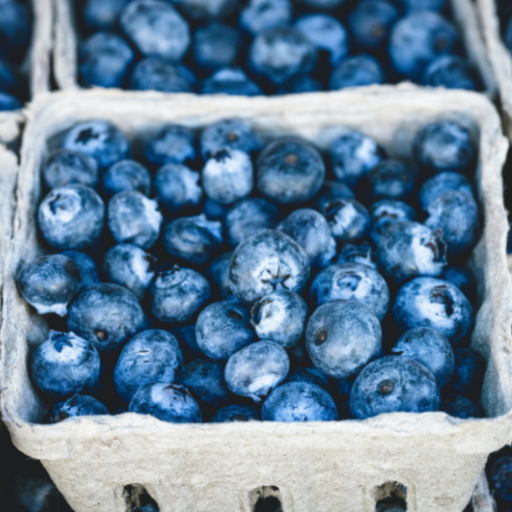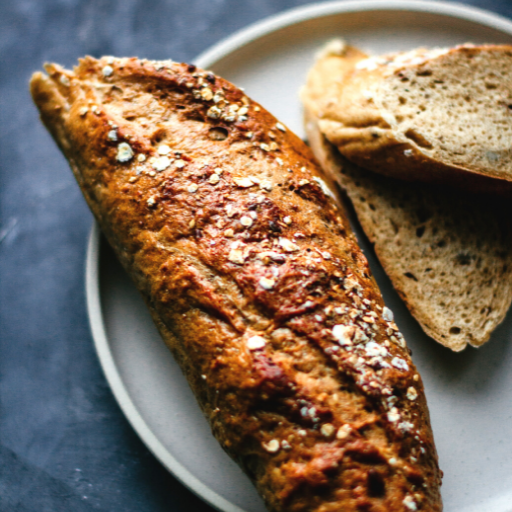5 magnesium-rich food sources for good heart health
5 magnesium-rich food sources for good heart health
Heart conditions are among the most common health conditions affecting Australians today. Yet, they remain one of the trickiest health problems to manage (1).
Eating foods that are high in antioxidants, dietary fibre, and micronutrients can help lower blood pressure, thus keeping your heart healthier (8) . Part of having a healthy heart is also having the right intake of vitamin A, calcium, selenium, and iodine.
Magnesium is essential for heart health. Magnesium can help reduce the risk of cardiovascular disease (9) and promote healthier heart muscles (7). Magnesium also helps convert food into energy and supports your overall wellbeing (2). Consuming the daily recommended dose of magnesium by incorporating both dietary supplement as well as the right foods in your diet could help you and your heart stay healthy.
Sources of magnesium
Here are some options of magnesium-rich foods:
Vegetables and fruits

Fruits and veggies, particularly leafy greens, remain the healthiest food categories to gain nutrition from. These nutrients include vitamins A, C, and E, zinc, phosphorus, and folic acid (10). Some of these vegetables produce high intakes of magnesium as well as other nutrients and minerals when cooked.
Spinach, potato, okra, and edamame are some options of magnesium-rich fruits and veggies.
Nuts and seeds and dark chocolate
Trail mix is a good source of energy and a healthy on-the-go snack. Varieties of trail mix that contain magnesium-rich nuts can assist in glucose breakdown, making your body's energy-producing cycle much more productive (4). Nuts and seeds are also an excellent source of vitamins like vitamin E, B6, niacin, and folate which are good for the heart.
Dark chocolate is as healthy as it is delicious. It's very rich in magnesium, with 64 mg of magnesium in a 28-gram serving. Nuts like cashews, peanuts, and pumpkin seeds are good snacks to have at home, at work, or during walks. While seeds are a good source of potassium, calcium, plant iron, and zinc (11).
Protein-rich food like yogurt and soy
Meat and poultry are great sources of protein, but do not provide sufficient magnesium. To increase magnesium intake consider other food sources like cheese, yogurts, and soy that provide both protein and magnesium (5).
If vegan or vegetarian, soy nuts, beans like lima and chickpeas, tofu, black eyed peas, and even peanut butter can easily be integrated into your daily diet to get sufficient protein and magnesium. Yogurt also contains calcium, zinc, and probiotics (12).
Whole-grain foods

Most cereals, especially organic options, hold a good source of magnesium content (6). This not only makes the classic breakfast a preferred source of magnesium, but an option for quick energy boost.
Whole wheat bread, black beans bran cereal, cooked wheat germ, and cooked quinoa also contain magnesium.
Fish
Fish comes naturally packed with omega-3, vitamin D, and magnesium (7). Tuna and salmon are popular fish that can help to strengthen the cardiovascular system.
Consuming fish in meals at least twice a week is recommended by the Heart Foundation of Australia (1). This can boost your magnesium intake significantly and help maintain a healthy heart.
Are you into customising your own daily vitamins for greater health benefits? We've got just the thing for you! Vitable let's you put together your own vitamin subscription for an assortment of health benefits that you can pair with healthy living. Also looking for vitamin delivery? That's all part of Vitable's awesome package for personalised vitamins in Australia.
Here are other areas that magnesium can help you with, plus other supplements that can benefit in different ways:
Magnesium | Astaxanthin | Acetyl L carnitine | Fish oil | Vegan omega
*Always read the label. Follow the directions for use. If symptoms persist, talk to your health professional. Vitamin and/or mineral supplements should not replace a balanced diet.
References:
- Heart Foundation. Key Statistics: Heart Disease. Heart Foundation. Published 2020 on https://www.heartfoundation.org.au. Accessed on 13 August 2021.
- Tardy AL, Pouteau E, Marquez D, Yilmaz C, Scholey A. Vitamins and Minerals for Energy, Fatigue, and Cognition: A Narrative Review of the Biochemical and Clinical Evidence. Nutrients. 2020;12(1):228. Published 2020 Jan 16. doi:10.3390/nu12010228
- Eat for Health. Vegetables and Legumes / Beans. Eat for Health. Published April 2019 on https://www.eatforhealth.gov.au/food-essentials/five-food-groups/vegetables-and-legumes-beans. Accessed on 13 August 2021.
- International journal of molecular sciences vol. 20,6 1351. Effects of Magnesium Deficiency on Mechanisms of Insulin Resistance in Type 2 Diabetes: Focusing on the Processes of Insulin Secretion and Signaling. Kostov, Krasimir. 18 Mar. 2019, doi:10.3390/ijms20061351.
- Nutrient Reference Values. Magnesium. Nutrient Reference Values. Published 2014 on https://www.nrv.gov.au/nutrients/magnesium. Accessed on 13 August 2021.
- BetterHealth. Cereals and wholegrain foods. BetterHealth. Published 2014 on https://www.betterhealth.vic.gov.au/health/healthyliving/cereals-and-wholegrain-foods . Accessed on 13 August 2021.
- Vitable. Magnesium. Vitable. Published 2020 on https://research.vitable.com.au/magnesium . Accessed on 13 August 2021.
- Nutrition Education Materials Online team. “Heart Failure Nutrition". Queensland Government. Last reviewed March 2018 at https://www.health.qld.gov.au/__data/assets/pdf_file/0033/149892/cardiac_hftalk.pdf. Accessed on 23 August 2021.
- Cascina, T., Hummel, S., "Nutrient Deficiencies in Heart Failure: A Micro Problem With Macro Effects?". Journal of the American Heart Association. Published Sept 2018 on https://www.ahajournals.org/doi/10.1161/JAHA.118.010447. Accessed on 23 August 2021.
- Better Health Channel. "Fruits and vegetables". Better Health Channel. Published (n.d.) on https://www.betterhealth.vic.gov.au/health/healthyliving/fruit-and-vegetables. Accessed on 23 August 2021.
- Better Health Channel. “Nuts and seeds”. Better Health Channel. Published (n.d.) on https://www.betterhealth.vic.gov.au/health/healthyliving/Nuts-and-seeds#benefits-of-seeds. Accessed on 23 August 2021.
- El-abbadi, N., Dao, M., et. al. "Yogurt: role in healthy and active aging". National Institutes of Health: US National Library of Medicine. Published April 2014 on https://www.ncbi.nlm.nih.gov/pmc/articles/PMC6410895/. Accessed on 23 August 2021.
